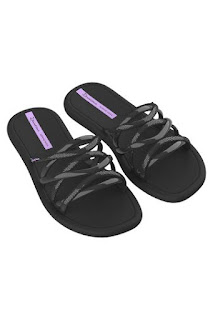Baby Shoes Buying Guide: Expert Tips for Selecting the Right Footwear
Introduction
When it comes to buying shoes for your little one, it's important to find the right footwear that combines style, comfort, and support. As a parent, you want nothing but the best for your baby's developing feet. In this baby shoes buying guide, we'll provide you with expert tips to help you select the perfect pair of shoes. From understanding the importance of proper fit to considering the materials and features, we've got you covered. Get ready to make informed decisions and ensure happy and healthy little feet.
1. The Importance of Proper Fit
The first and most crucial tip for buying baby shoes is ensuring a proper fit. Your baby's feet are still developing, so it's essential to choose shoes that allow for natural growth and movement. Look for shoes that offer a wide toe box, allowing the toes to wiggle freely. Measure your baby's feet regularly and choose shoes that provide enough room for growth without being too loose or tight.
2. Soft and Flexible Materials
For infants and early walkers, opt for soft and flexible materials that mimic the feeling of being barefoot. Soft leather, cloth, or canvas shoes are ideal choices as they allow for proper foot development and flexibility. Avoid stiff or rigid materials that can restrict movement or irritate your baby's delicate skin.
3. Supportive Soles
While flexibility is important, it's equally crucial to consider shoes with supportive soles. Look for shoes with non-slip and skid-resistant soles to provide stability and grip as your baby starts exploring the world on their feet. Lightweight yet durable materials offer a balance between support and comfort.
4. Easy On and Off
Babies are known for their wiggly little toes and busy schedules, so finding shoes that are easy to put on and take off is a game-changer. Look for shoes with adjustable closures such as Velcro straps or elasticized openings. This will not only save you time and frustration but also ensure a secure and comfortable fit for your baby.
5. Breathability and Moisture Control
Babies' feet can get sweaty, so it's important to choose shoes that promote breathability and moisture control. Look for shoes with breathable fabrics and ventilation features to keep your baby's feet cool and dry. This helps prevent discomfort and reduces the risk of fungal infections.
6. Safety Considerations
When buying baby shoes, safety should be a top priority. Avoid shoes with small parts or loose embellishments that could pose a choking hazard. Ensure that the shoes have no sharp edges or rough seams that could irritate your baby's skin. Additionally, opt for shoes that are made with non-toxic materials and have undergone safety testing.
7. Regular Size Check-ups
Babies grow rapidly, and their feet can outgrow shoes faster than you realize. Regularly check your baby's shoe size and replace shoes as needed. Remember that growth spurts can happen suddenly, so it's important to be attentive to your baby's comfort and ensure they have room to grow in their shoes.
Conclusion
Selecting the right shoes for your baby is a significant decision. By considering proper fit, soft and flexible materials, supportive soles, easy on and off features, breathability, safety, and regular size check-ups, you can make informed choices that prioritize your baby's comfort and foot development. Remember, each baby is unique, so it's essential to observe your little one's cues and adjust shoe choices accordingly. With this baby shoes buying guide, you can confidently find the perfect footwear that keeps your baby's feet happy, healthy, and ready for all the adventures that lie ahead.
Read also - The Latest Trends in Women's Flat Sandals
.jpeg)
.jpeg)


.jpeg)
Comments
Post a Comment